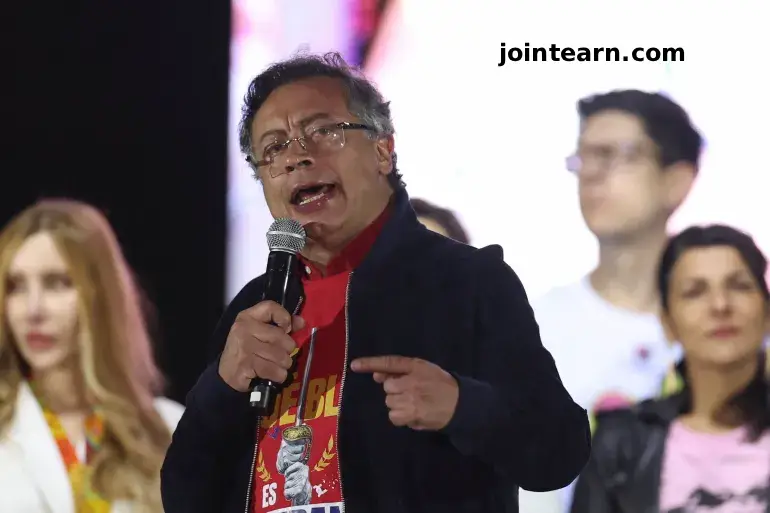
Colombian President Gustavo Petro has ordered a suspension of intelligence sharing with the United States, citing ongoing US missile strikes in the Caribbean as the primary reason. The decision reflects escalating tensions between Bogotá and Washington under the Trump administration.
Details of the Intelligence Suspension
In a post on social media platform X, President Petro stated:
“An order has been given at all levels of the public security force’s intelligence services to suspend communications and other dealings with US security agencies. This suspension will remain in force as long as the missile attacks on boats continue.”
Petro’s directive affects all levels of Colombian public security intelligence, signaling a major breakdown in cooperation between the two nations’ security services.
Background: US Missile Strikes in the Caribbean
The suspension comes amid a series of missile strikes by the United States in the Caribbean, which the US claims targeted drug-trafficking boats. These attacks have reportedly killed at least 75 people, affecting citizens from Venezuela, Ecuador, Colombia, and Trinidad and Tobago.
Petro has publicly criticized the US for allegedly targeting small-scale farmers growing coca rather than major drug traffickers and organized criminal networks, calling for an investigation into potential war crimes committed by the Trump administration.
Petro Meets Families of Victims
On Sunday, Petro reportedly met with the family of a Colombian fisherman allegedly killed in one of the strikes, emphasizing that the man had not been sentenced to death. Petro remarked:
“He may have been carrying fish, or he may have been carrying cocaine, but he had not been sentenced to death. There was no need to murder him.”
This meeting underscores Petro’s stance on human rights and due process in the context of US anti-drug operations.
History of Tensions Between Petro and Trump
The Colombia-US feud is not new. In September 2025, Petro left the US shortly after his visa was revoked during a visit to New York for the United Nations General Assembly, reportedly due to his “reckless and incendiary actions.”
Petro has frequently criticized US foreign policy, including military actions in Venezuela and support for Israel during the war in Gaza. He has called for US soldiers to disobey Trump’s orders when they conflict with humanitarian principles.
Additionally, the US Department of the Treasury recently imposed sanctions on Petro, his family, and Interior Minister Armando Benedetti, alleging failure to control Colombia’s cocaine industry and shielding criminal networks from accountability.
US Military Presence in the Caribbean
Petro’s announcement coincided with the arrival of the USS Gerald R. Ford Carrier Strike Group in the Caribbean, which includes the world’s largest aircraft carrier, 4,000 sailors, and tactical aircraft. The Pentagon confirmed the deployment, heightening speculation that the US may escalate military operations in the region, primarily targeting Venezuelan President Nicolas Maduro’s government.
The combination of the military presence and ongoing strikes has contributed to Petro’s decision to halt intelligence cooperation, signaling a potential diplomatic and strategic rift in Latin America-US relations.
Implications for Colombia-US Relations
Analysts warn that the suspension of intelligence sharing could:
- Weaken regional security coordination against transnational crime.
- Strain diplomatic relations between Colombia and the United States.
- Create operational challenges for US and Colombian counter-narcotics efforts in the Caribbean.
Petro’s move is also emblematic of his broader critique of US foreign policy, positioning Colombia as a nation asserting its sovereignty and humanitarian concerns amid external military interventions.


Leave a Reply